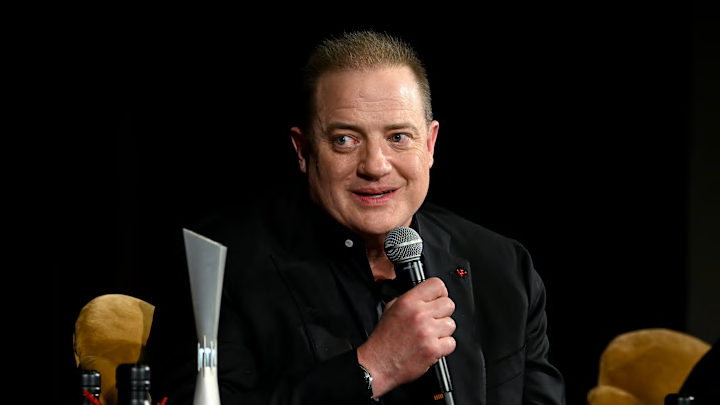A few days ago, the internet was set ablaze by the confirmation of long-held rumors and fan speculation: Brendan Fraser and Rachel Weisz are returning to Universal’s beloved The Mummy franchise. The announcement also revealed that the acclaimed horror directing duo of Radio Silence, who previously relaunched the Scream franchise via a pair of legacy sequels, is helming the long-awaited sequel. It will be the first proper installment in this version of the franchise since 2008's The Mummy: Tomb of the Dragon Emperor.
However, amidst all of the frenzied excitement about the announcement of the new film, a crucial question was overlooked by the vast majority of the media: what the hell does this mean for Lee Cronin’s The Mummy reboot that has already finished filming and is set for release next year?
The monstrous history of The Mummy franchise
Over the course of the last several decades, the trajectory of Universal’s stable of iconic movie monsters has ebbed and flowed. While classic films such as Dracula, Frankenstein, The Mummy, The Wolf Man, and The Creature from the Black Lagoon saw the studio’s original interconnected franchise dominating culture throughout the ‘30s, ‘40s, and ‘50s, things got decidedly more complicated after that. Because so many of these films were based on classic horror novels that had fallen into the public domain, other studios were legally able to make films with these titles and characters, so long as they avoided direct homages to the films specifically. The result was a slew of adaptations of these stories, notably from places like Hammer Horror, that weren’t actually related to Universal at all.
Over the course of the past three decades though, Universal has made various attempts to get back into the monster game in proper form. The first bona fide film in this effort was Stephen Sommers’ The Mummy, starring Fraser and Weisz, which released in 1999. The film was a genuine blockbuster sensation, inspiring two sequels and numerous spinoffs in the form of The Scorpion King series. After that, Universal gave Sommers the keys to the whole monstrous kingdom with Van Helsing, a 2004 film that featured pretty much every other classic monster in their canon. That film, however, was an unexpected and highly costly flop, leading to Universal putting a hold on any future plans.
Since then, things have been touch-and-go for a long time. In 2017, the studio notably put a lot of effort and finances into launching what was to be a big-budget blockbuster reboot of the whole series, branded as the Dark Universe. This was all to be kicked off with the Tom Cruise-starring The Mummy, a partial reboot of the ’99 film and a blatant attempt at diving headfirst into the then-modern interconnect cinematic universe fad. The film infamously tanked so hard that Universal was forced to put all of its plans on ice once more, canceling nearly a dozen previously announced films that already had stars such as Angelina Jolie, Javier Bardem, Johnny Depp, and Tom Cruise all attached to lead them.
In the aftermath of this very public failure, Universal made a deal with Blumhouse Productions, an independent production company with whom it had a longstanding first-look relationship, to create lower-budget, more horror-orientated riffs on the classic monsters. This kicked off with Leigh Whannell’s The Invisible Man in 2020 to great success; the film earned rave reviews and made a killing at the box office just before theaters shuttered due to COVID lockdowns. However, it seems as if COVID also served to stall out any forward momentum this iteration of the franchise might have had. The next Blumhouse-produced monster movie wasn’t until earlier this year, with Whannell’s Wolf Man, which was met with decidedly less favorable reviews and flopped at the box office.
Following this, the plan was for Blumhouse to tackle The Mummy next, courting Evil Dead Rise director Lee Cronin to helm a new take on the monster. Performers were cast, filming commenced, and production officially wrapped several months ago, with a release slated for early 2026. But now, Universal has announced a different, non-related Mummy movie that is instead a sequel to the ’99 version of The Mummy. So what exactly is happening with Cronin’s would-be reboot?

According to inside sources and online rumors, the film has been having test screenings as of late that haven’t been going particularly well. This, in conjunction with audiences’ ravenous appetite to see Fraser return to the franchise in the wake of his return to starring roles with his Academy Award winning movie The Whale, has led to Cronin's film getting a total rebrand. Now, allegedly, Lee Cronin’s film is set to be retitled The Resurrected and released as planned, just minus any connection to The Mummy franchise.
This is an extremely strange move, but not one that is hard to see the logic behind. Releasing a new reboot of The Mummy just before beginning production on a legacy sequel to the ’99 version would be exceedingly odd, and could prove detrimental either way. If Cronin’s film is great, then audiences would only be further confused by the return to the prior version of the franchise. If Cronin’s version is bad, then it would serve to further taint the franchise name, becoming the second poorly received reboot of the property within the last decade. As such, exorcising Cronin’s film from the IP altogether is undoubtedly the smartest branding move, but is more than a bit morally dubious.
